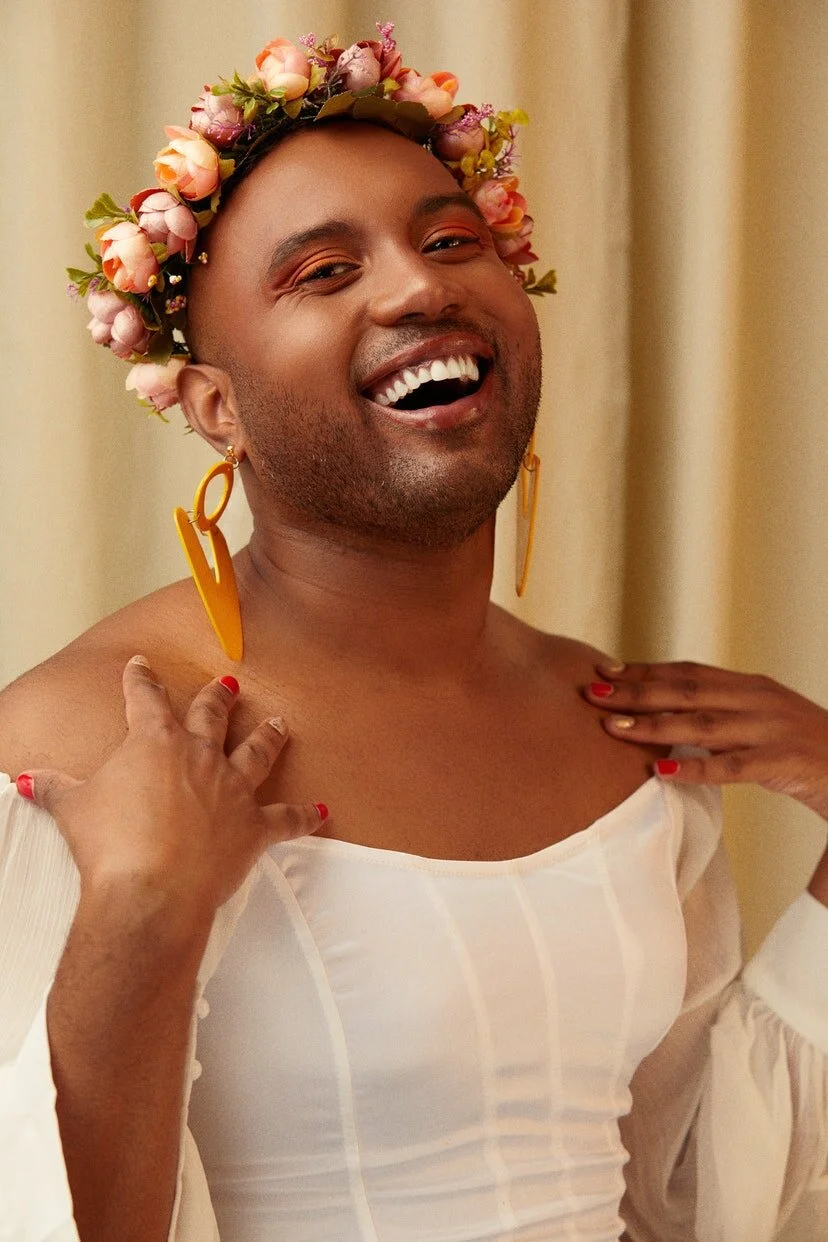Gender 101
A few common gender terms
Sex is a spectrum that is based on primary sex characteristics (like sex organs) observed and assigned at birth. Three commonly observed categories include male, female, and intersex.
Gender binary is the societal system of classification for gender and sex, in which people are categorized as male or female. It does not account for the diverse range of gender identities and ways people experience gender.
Gender identity is how people think and feel about their identity and can either relate or not relate to sex assigned at birth.
There are many genders people can identify with.
Cisgender describes a person whose gender identity corresponds with the sex they were assigned at birth. Beyond cisgender, there is a wide range of terms that may help to better describe your gender. Terms like: Androgyne, Bigender, Boi, Demigender, Feminine-of-center, Genderfluid, Genderqueer, Gender neutral, Gender nonconforming, Gender questioning, Masculine-of-center, Non-binary, Pangender, Transfeminine, Trans, Transgender, Transmasculine, Queer
There are also several culturally-specific gender terms like Two-Spirit, Third Gender, Hijra, Kathoeys, Fa’afafine, Latinx or Latine, Muxe, Waria
Below we’ll include some definitions, but we’re not experts on all labels. We recommend this website from It Gets Better Project that has definitions from a diverse group of LGBTQ+ identified people.
Geo Soctomah Neptune (they/them)
“The general agreed upon English translation is ‘Two Spirit’ – someone who has both masculine and feminine spirits. Other words I would use to describe myself would include nonbinary, transfeminine and, in my presentation, gender-nonconforming.”
Gender expression is the style in which you express your gender through clothes, embodiment, hair, and gestures. What expresses your gender to you doesn’t have to be what other people expect. Playing with gendered fashions is a form of self-expression, a language all its own.
Here are just a few words people use to express their gender: soft butch, hard femme, soft masc, futch, high femme, stone butch, femme, butchy femme, king, Tomboy, Tomboi, Stud, Masculine, Feminine, Androgynous.
Alok Vaid-Menon (they/them)
“I think there is something meaningful about taking silhouettes, patterns, colors, and forms like skirts, bras, gowns, and bright colors that we have been taught to associate with ‘women’ and ‘femininity’ and saying these don’t necessarily have to be gendered – they can be worn by all bodies.”
Sexual orientation is the way you relate to others romantically and/or sexually. Your orientation can influence how you express your gender.
There are so many words to talk about the ways we love: Heterosexual, Homosexual, Bisexual, Pansexual, Asexual, Queer, Homoromantic, Aromantic, Heteroromantic, Heteroflexible, Homoflexible, Polyamorous, Kinky, Panromantic, Gray-sexual
Yasmin Benoit (she/her)
“I realized I was asexual around the same time my peers seemed to realize that they were not. Once the hormones kicked in, so did a nearly universal interest in sex for those around me. I thought sex was intriguing, but never so much that I wanted to express my sexuality with someone else. I had no sexual desire towards other people, I did not experience sexual attraction, and that hasn’t changed.”
Pronouns are what other people use to refer to you.
You can use whatever pronouns feel right no matter what your gender identity is or gender expression. You can be nonbinary and not use they/them pronouns, or you can identify as a girl, but choose to use a combination of she and they pronouns.
Here are just a few options: She/her, He/him, They/Them, Zi/zie, em/eir/eirs, fey
Kile Atwater (they/them)
“I’ve arrived at a place of knowing that people are more nuanced than just two categories; and the traditional rules of gender are outdated, artificial, and ultimately oppressive…I think we as a society need to have the courage to ask more questions about the world around us.
So with my comedy, that’s what I do. When I’m off stage, my pronouns are They/Them. But when I’m on stage I feel freedom in being called She/Me/Her, because at the end of the day this is Kile, and I am no longer playing by anyone’s rules but my own.”
Some gendered terms and labels
Beyond cisgender, there is a wide range of terms that may help to better describe your gender. Labels can be helpful shortcuts but don’t solely define you. Since these definitions are constantly changing, look up (or even create!) terms you don’t know but are curious about.
Some of these definitions are from It Gets Better Project’s Glossary.
Androgynous or Androgyne: someone who presents as neither male or female, mixed, or neutral.
Boi: multiple definitions exist for “boi” and can change depending on the community. In some lesbian communities “bois” are masculine-of-center, but the word means the opposite in some gay male communities. Some also believe only BIPOC folks may use “boi”.
Demigender: someone whose gender identity involves feeling a partial, but not a full, connection to a particular gender identity or just to the concept of gender.
Genderfluid: Someone who has a gender or genders that change, who moves between genders and experiences their gender as something that changes, rather than remaining constant.
Genderqueer, Gender nonconforming: Someone whose gender identity and/or gender expression expands beyond, actively resists, and/or does not conform to the current cultural or social expectations of gender, particularly in relation to male or female.
Gender questioning: someone who may be questioning their gender pronouns, some may actively use different pronouns as they question.
Intersex: Is an umbrella term for people who, due to a variety of factors, have reproductive or sexual anatomy that are different than the female or male sex. The word intersex does not describe gender, but rather sex. We include it here because some people mistakenly think it is about gender.
Non-binary: A person who's gender identity does not conform to the gender binary, which is the erroneous idea that only two distinct and opposite genders exist, male and female.
Pangender: someone who identifies with more than one gender, although not specific to one gender and may be unspecific.
Transfeminine: is a term used to describe transgender people who identify with a feminine gender identity to a greater extent than with a masculine gender identity.
Trans, transgender: Someone whose gender identity differs from the one that was assigned to them at birth.
Transmasculine: is a term used to describe transgender people who identify with a masculine gender identity to a greater extent than with a feminine gender identity.
Queer: In a very basic sense, anyone who is not heterosexual and/or cisgender. In the past, queer was a negative or pejorative term for people who are gay, and thus it is sometimes disliked.
Culturally-specific terms are words that different racial or ethnic groups use for gender, some of these terms are distinct with their own history. We’re also not experts on culturally specific terms, so we recommend folks to do their own research.
Two-Spirit: A modern umbrella term used within Indigenous communities of North America that bridges Indigenous and Western understandings of gender and sexuality.
Third Gender: typically an umbrella term for societally or legally recognized gender role outside of the gender binary of male and female.
Hijra: a term used in the Indian Subcontinent for transgender and intersex people.
Kathoeys: a term used in Thailand for transgender Thai people.
Fa’afafine: a term used by non binary and third gender people in the Samoan diaspora.
Latinx or Latine: a gender neutral term used to describe people from Latin America, some gender non-confirming people may use this instead of gendered terms like “latino or latina”.
Muxe: In Zapotec cultures of Oaxaca, muxe is a term used for a person assigned male at birth who is associated as a woman.




